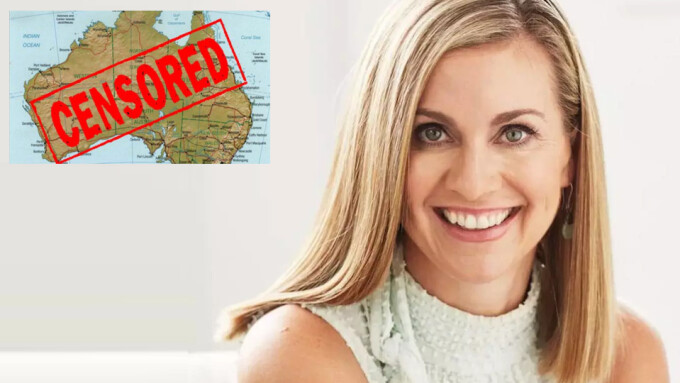SYDNEY — The ongoing fight between X owner Elon Musk and Australia’s top online censor, unelected eSafety Commissioner Julie Inman Grant, over her office’s power to ban specific content in the country and abroad, has moved into murky territory with both sides claiming partial victories.
Inman Grant has dropped her case in Australian federal court, which sought to force X to take down a user-posted video depicting the assassination of an Assyrian Orthodox bishop in a Sydney church on April 15 during a church service.
However, the eSafety Commissioner stressed that she intended to continue her legal action in the Administrative Appeals Tribunal, where X started a parallel challenge against her authority. Inman Grant also said her commission “had another five legal cases against X, including over the platform’s failure to reveal how it was combating child sexual abuse material,” The Associated Press reported.
Musk celebrated eSafety dropping the federal case by posting, “Freedom of speech is worth fighting for.”
The case underscored Inman Grant’s censorship powers within Australia, however, as judges ruled that X’s decision not to remove the video internationally, but to geoblock it for Australia, was adequate.
The compromise is consistent with Musk’s non-absolutist approach to free speech. The entrepreneur has stated that X would “respect the speech laws of each country” so that the platform he purchased in October 2022 will not become “a free-for-all hellscape.”
As XBIZ reported, Inman Grant has in the past been questioned by progressive free speech advocates in Australia over her campaigns to target adult content. More recently, conservatives and libertarians have begun raising concerns about the powers granted to the country’s top censor — an unelected former tech exec born in the U.S., who worked for Twitter before Musk purchased it — with some calling for her ouster.
Musk, a powerful voice among conservatives worldwide, publicly unleashed his criticism of Inman Grant as soon as her office challenged the geoblock approach and demanded the complete removal of the video.
“Our concern is that if ANY country is allowed to censor content for ALL countries, which is what the Australian ‘eSafety Commissar’ is demanding, then what is to stop any country from controlling the entire Internet?” he posted.
Three weeks before Inman Grant dropped the federal case, Justice Geoffrey Kennett withdrew an injunction requiring X to hide the content globally, AP reported.
Kennett agreed with X’s argument that the global ban was not reasonable, and stated that it “clashed with an international concept of the ‘comity of nations,’ which recognizes that countries’ laws have territorial limits.”
“If given the reach contended for by the commissioner, the removal order would govern the activities of a foreign corporation in the United States and every country where its servers are located,” Kennett wrote. “It would be a clear case of a national law purporting to apply to persons or matters over which, according to the comity of nations, the jurisdiction properly belongs to some other sovereign or state.”
Kennett upheld the geoblock compromise, however, effectively buttressing Inman Grant’s controversial powers to censor content within Australia.
A recent article by an Australian libertarian think tank quoted Inman Grant’s statements at the World Economic Forum’s annual gathering in 2022, where she advocated for “a recalibration of a whole range of human rights that are playing out online, from freedom of speech to the freedom to be free from online violence.”
As XBIZ reported, the vocally anti-porn Inman Grant has acknowledged having conversations with U.S.-based, religiously-inspired lobby NCOSE — formerly Morality in Media — and even appeared on an NCOSE podcast at the Coalition to End Sexual Exploitation summit in July 2021, shortly after the Australian Parliament passed the Online Safety Act.
In November 2021, Australian progressive investigative outlet Crikey published a lengthy report on Inman Grant’s obsession with banning online porn.







